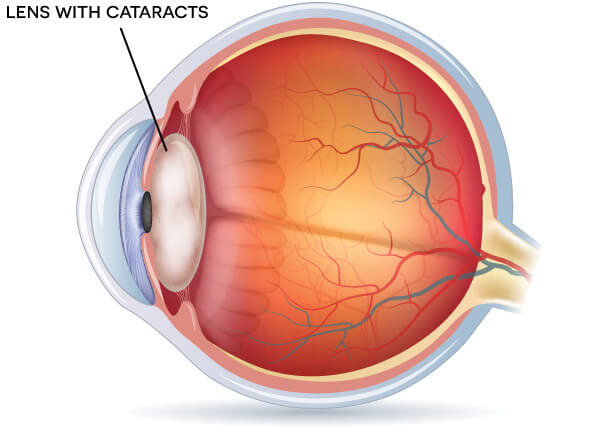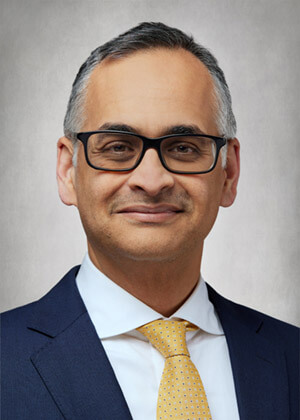Cataracts
Cataracts can interfere with your vision and quality of life. Thankfully, cataract surgery has become a much easier, less invasive procedure than it was years ago with better outcomes for most patients. Our highly specialized cataract surgeons are recognized as leaders in their field. They offer the most advanced treatment procedures and provide you with the highest quality care. Our patients often experience life-changing improvement in vision.
A cataract is a clouding of the eye’s natural lens that can interfere with your vision and is considered the most common cause of vision loss around the world. If you have a cataract, your vision may become blurry, cloudy and you may experience increased glare. Having cataracts has been described as looking through a foggy window. Depending on the degree of cloudiness, a cataract can cause a little blurring or severe loss of vision. The rate at which a cataract progresses is highly variable. A cataract is not a tumor or growth. Vision can only be restored by surgical removal of the natural lens. More than three million cataract operations are performed each year in the United States.
Many people who have undergone cataract surgery at one of our ambulatory surgery centers find that their vision is not only better than it was prior to surgery, but better than it has been throughout their lives.
If you are experiencing symptoms of a cataract or you are at risk for developing cataracts, schedule a comprehensive eye exam today.


Who is at Risk?
Aging is the biggest risk factor for cataracts. In fact, cataracts are considered a natural part of the aging process. As we age, the lens inside the eye, which is made mostly of water and protein, becomes cloudy and hardens. The protein part of the lens may clump together, preventing light from coming through the lens causing cloudy vision. Aging changes vary from person to person. Some people may develop cataracts as early as 40, while others are much older. By the age of 80, most Americans either have a cataract or have had cataract surgery, according to the National Eye Institute.
You may be at risk for developing cataracts at an earlier age if you:
- have diabetes
- have a family history of cataracts
- extensive exposure to sunlight
- smoke
- are obese
- have high blood pressure
- have had a previous eye injury or surgery
- have used steroid medications long term
Cataracts cannot be prevented. However research shows that you may be able to slow down the progression of a cataract, by taking certain measures such as wearing sunglasses and a hat or visor to protect your eyes from the sun’s ultraviolet rays. Quitting smoking may also help.
Symptoms & Diagnosis
As a cataract begins to develop, you may not notice any changes in your vision at first. People often notice glare as one of the first symptoms. Other common symptoms of cataracts:
- Vision becomes cloudy, colors are dull
- Glare while driving at night or in the bright sun
- Halos or lines of light around a point source such as headlights
- Increased light sensitivity
- You may need brighter lights to read, see faces or enjoy your hobbies
Cataracts are diagnosed during your dilated eye exam. Your OCB eye doctor will see clouding of your lens on physical examination. Testing will include checking visual acuity, refraction and sensitivity to glare. With glare testing, you will look at an eye chart and lights are introduced that simulate nighttime glare or sunlight.





















